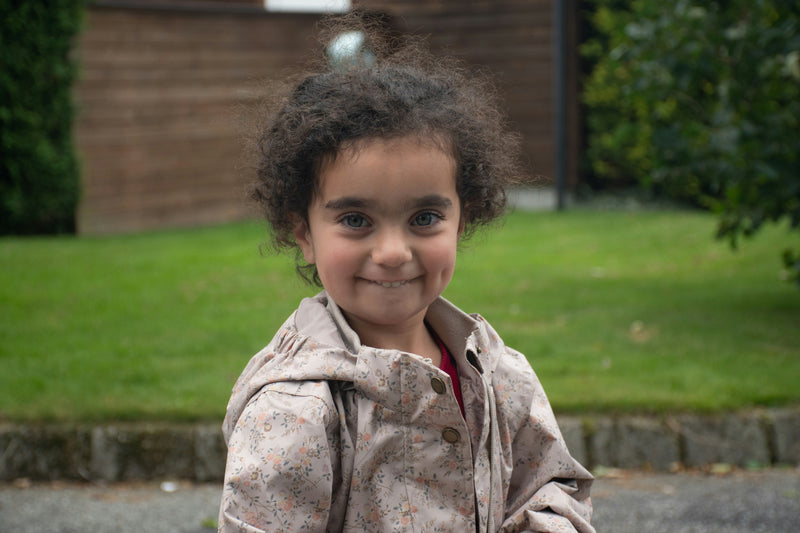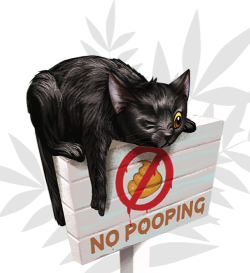
The Giggles & Grins Guide: Helping Kids Develop Their Funny Bone! 😂✨
Remember the pure, magical sound of your child's first real belly laugh? That contagious cascade of giggles that lights up their entire face and warms your heart? Humor isn't just delightful—it's actually a superpower that helps children navigate life's ups and downs with resilience and joy. And the best part? It's a skill we can nurture and grow! 🌱🤣
Why a Sense of Humor Is Child Development Gold 🏆💫
Laughter isn't just fun—it's fundamental! Research shows that children with a well-developed sense of humor enjoy some serious benefits:
- Stronger social connections and friendships 👫
- Better stress management and emotional regulation 😌
- Enhanced cognitive development and creativity 🧠
- Higher resilience when facing challenges 💪
- More positive outlook on life overall 🌈
The Confident Mindset Journal helps children develop the self-assurance that allows them to laugh at themselves and find joy even during challenging moments. 📔✨
Humor Grows Up: What's Funny at Different Ages 👶👧👦
Understanding age-appropriate humor helps us connect with children where they are:
Toddler Tickles (Ages 1-3) 🧸
At this stage, humor is physical and immediate:
- Peek-a-boo surprises 👻
- Silly faces and sounds 🤪
- Physical comedy like pretend falls 🏃♂️
- Unexpected (but gentle) surprises 🎁
Preschool Punchlines (Ages 3-5) 🎭
Now children discover the joy of language play:
- Nonsense words and silly rhymes 🎵
- Simple jokes with obvious punchlines 🥁
- Potty humor begins its reign 🚽
- Incongruity humor ("Daddy is a monkey!") 🐒
Elementary Chuckles (Ages 6-9) 🏫
Humor becomes more sophisticated:
- Riddles and word play 🔤
- "Knock-knock" and simple pun jokes 🚪
- Playful exaggeration 📏
- Silly stories they create themselves 📚
Tween Titters (Ages 10-12) 🎒
Social and more complex humor emerges:
- Inside jokes with friends 🤫
- Parody and imitation 🎭
- More sophisticated wordplay 🔠
- Understanding of irony begins 🙃
The stories in the My Furry Soulmates series include age-appropriate humor that models healthy laughter and joy through lovable animal characters. 📚🦊
Creating a Home Where Laughter Lives 🏠😄
The foundation for humor development starts with a joyful household culture:
1. Laugh Together Daily 📅
- Share funny moments from your day at dinner
- Have a family joke book or humor corner
- Watch age-appropriate comedies together
- Create silly family traditions (Backward Day, anyone?)
2. Model Finding the Funny 🔍
- Laugh at yourself when you make mistakes ("Oops! I just put the milk in the cabinet instead of the fridge! My brain is taking a vacation today!")
- Point out life's amusing moments ("Look at how our dog is sleeping—she looks like a pretzel!")
- Show how humor helps in tough situations ("This traffic is terrible, but hey, more time for our silly song contest!")
3. Create "Yes, And" Spaces 🎪
The improv comedy principle of "Yes, and..." builds both humor and creativity:
- Follow your child's silly lead instead of correcting it
- Add to their jokes or funny ideas rather than explaining why they don't make sense
- Allow space for humor that might seem "off" to adult sensibilities (within appropriate boundaries)
The Curiosity Mindset Journal encourages this playful, exploratory mindset that forms the foundation of creative humor. 🔍✨
Fun Activities to Build Humor Muscles 🏋️♀️😆
Like any skill, humor gets stronger with deliberate practice:
1. The Silly Story Generator 📝
Take turns adding one line to a story, trying to make it increasingly absurd. Start with a mundane beginning: "Today I went to the grocery store..." and see where the giggles take you!
2. Joke Workshop 🛠️
Help children understand joke structure with this simple activity:
- Pick a joke format (knock-knock, what do you call, etc.)
- Analyze why a few examples are funny
- Create new versions together, even if they're "bad" jokes
- Celebrate the attempt more than the perfect punchline
3. Caption Contest 🖼️
Find funny photos or family pictures and hold a caption contest. Even younger children can participate by describing what they think is happening in the silliest way possible.
4. Meme Family 🤳
For older kids, create a family meme collection with inside jokes and funny moments from your lives. This celebrates your unique family humor while teaching them about this modern form of comedy.
5. Laughter Scavenger Hunt 🔍
Challenge children to find things throughout the day that make different people laugh. This helps them observe that humor is both personal and universal—a powerful social insight!
The Kindness Mindset Journal helps children understand how humor can build connections and lift others up when used with compassion. 📔💕
The Humor Guardrails: When Funny Isn't Funny 🛑🤔
Part of developing a healthy sense of humor is learning important boundaries:
Gentle Guidance for Humor Hiccups 🗣️
When humor misfires, use these teachable moments:
- "That joke might hurt someone's feelings because..."
- "It's only funny if everyone is laughing, including the person the joke is about."
- "Some jokes are fun in our family but aren't appropriate for school/grandma's house/etc."
Humor vs. Meanness 💔
Help children understand the difference between laughing with someone and laughing at them:
- "How might Alex feel if he heard that joke about him?"
- "What's the difference between teasing and bullying?"
- "Let's think of a joke that would make everyone feel included."
From Giggling to Joy: The Bigger Picture 🌈❤️
A sense of humor is one pathway to something even more precious: a capacity for joy. Beyond the laughs, we can help children develop a joyful outlook by:
1. Celebrating Everyday Magic ✨
- Point out simple pleasures: the perfect crunch of fall leaves, the first spring flower, a particularly beautiful cloud
- Create small celebratory moments for ordinary accomplishments
- Start or end the day by naming something delightful
2. Cultivating Present-Moment Awareness 🧘♀️
- Practice simple mindfulness through "joy spotting"
- Take "awe walks" where you look for amazing things
- Create "joy jars" where family members drop notes about moments of delight
3. Building Positive Anticipation 🔮
- Plan simple things to look forward to
- Create countdown traditions for special events
- Talk about future possibilities with excitement
The core mindsets developed through the Confident Mindset Journal, Curiosity Mindset Journal, and Kindness Mindset Journal create the foundation for both humor and joy to flourish throughout childhood and beyond. 📚🌱
The Laughter Legacy: Humor as a Life Skill 🌱➡️🌳
When we nurture humor in childhood, we're not just adding fun to the present moment—we're equipping children with a powerful tool they'll use throughout their lives to:
- Navigate social complexities with ease 👥
- Build stronger personal and professional relationships 🤝
- Process difficult emotions in healthy ways 🧠
- Find light even in challenging circumstances 🔦
- Create their own happiness rather than waiting for it 🎁
Starting Today: Simple Steps Toward More Giggles 👣😁
- Share a joke or funny story at dinner tonight
- Create a family "Funny Things" journal where you record moments that made you laugh
- Watch comedy appropriate for your child's age together this weekend
- Practice laughing at yourself when you make a small mistake
- Look for humor resources (books, videos, games) that match your child's current humor stage
Let's Share the Funny! 💬😂
What makes your child laugh the hardest? What funny family traditions have you created? Share your humor wins (and even the joke attempts that flopped!) in the comments below!
Remember: In a world that can sometimes feel heavy, helping children develop their sense of humor isn't frivolous—it's fundamental. By nurturing their ability to find humor and joy, we're giving them an inner resource that will brighten not just their childhood, but their entire lives. ✨🤣



0 comments